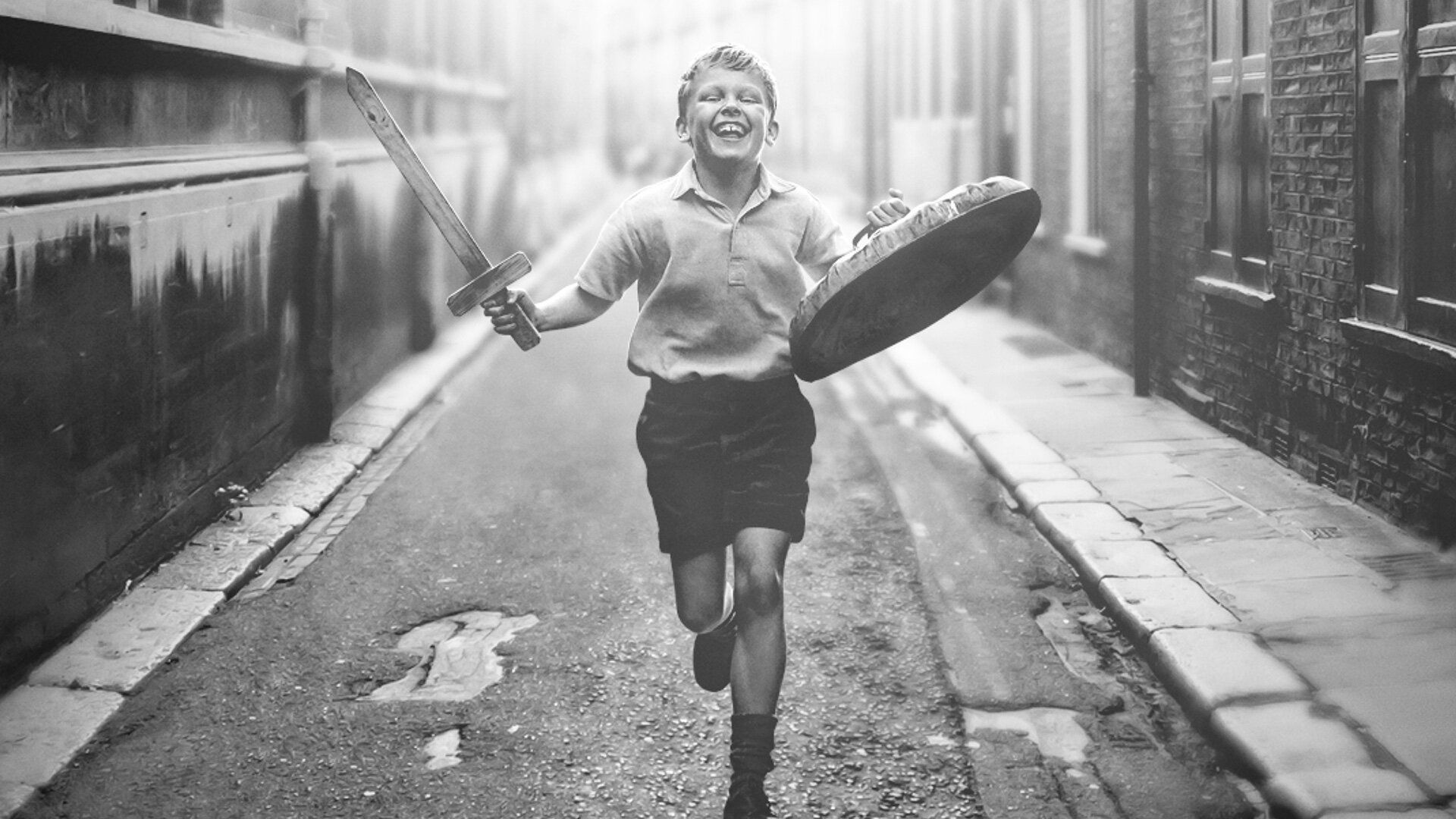I’ll take you back to 2018. Kenneth Branagh, working on a Russian accent for his upcoming role in Tenet, throws on Netflix in his downtime I’m guessing. He stumbles upon Roma, Alfonso Cuaron’s complicated but gorgeous ode to his coming of age in Mexico. And those creative juices start flowing in the talented director’s head. Using a familiar template most recently utilized by Cuaron, Branagh love letters his own upbringing with Belfast, a delightful look at the tumult of 1960s Northern Island through the eyes of young Ken, er, Buddy (Jude Hill).
Buddy is bascially a normal kid. He’s got a Ma (Caitriona Balfe), Pa (Jamie Dornan), Granny (Judi Dench), and Pop (Ciaran Hinds). Growing up in Belfast, he goes through rites of passage any kid his age goes through: trying to get good grades in school, playing football with his mates and cousins (Lara McDonnell plays Moira the pig tailed adorable one), developing his first crush, etc. Buddy also has other learned lessons that very much are Northern Irish specific: how to live on a mixed religious street, how to avoid angry rioters (Colin Morgan), and what to do if his home is too dangerous to actually live in anymore.
But no worries, because there’s football to be played or long division to be done! Branagh’s smartest and boldest move here is putting Jude Hill front and center in the story, painting the entire movie through his eyes. Buddy is pulled in all sorts of directions through Belfast’s runtime, and the movie gets a lot of power showcasing that slimmed down perspective kids get into lives outside of their own, trying to piece together what the hell is happening. Branagh nailed his casting too, as Jude Hill couldn’t be more lovable in the title role. His enthusiasm and wide eyed innocence is infectious, and Branagh and Jude Hill make Buddy perceptive, but not all knowing, having him learn lessons along the way from ministers, Pop, Granny, Ma, Pa, played magnificently by Ciaran Hinds, Judi Dench, Caitriona Balfe and Jamie Dornan. That childhood wonder and spirit gives Belfast an optimistic tone despite all the potential dangers surrounding our little hero.
Branagh never shies away from how scary that time was in Northern Ireland for a kid. By minute 3, Buddy has seen a car explode, a riot in the street, and a home broken into. The Protestant Northern Irish and Catholic Southern? Irish have centuries of bad blood between the two of them, and the economic instability of the 60s only exacerbated the problem. Fewer jobs means Pa has to work away from home for weeks at a time. Try as Ma might, she can’t control every minute of Buddy’s life, leaving him vulnerable to impressionable older cousins or worse, scary riot protest leaders. Buddy overhears late at night Ma and Pa fighting over these concerns, meaning the scares outside are also present inside the home as well on occasion. This complicated mess of a situation makes Belfast perpetually compelling, and gives the movie a propulsion driving toward some resolution, but an uncertain one, keeping the stakes high.
Like Kenneth Branagh, I had waves of nostalgia experiencing Belfast. If you have any Irish relatives (Northern or…Southern? I guess), you’ll immediately recognize their sardonic wit, wakes that are more like celebrations, and a community built around family. Granny and Pop easily were my Nan and Gramps, doling out that succinct, terse wisdom with a wink and a smile. The only point of contention was made by my mother: at no point was any Irish woman as beautiful as Caitriona Balfe, she was a walking angel of a woman. So props to you Caitriona Balfe: according to my mom, you’re more beautiful than every Irish woman that ever existed! High praise!

